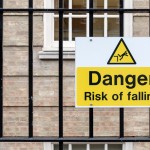
Falling is a major thing for most people but when you already have a musculoskeletal condition, it is important to know if you are at increased risk of falling and what you can do to minimise this risk.
There has been much interest in the literature on falls in older people but what are the risk factors for people with rheumatoid arthritis? We found a recent sysytematic review by a team in New Zealand that addressed this issue.
Here’s what they did
The authors searched electronic databases AMED, CINAHL, MEDLINE, Scopus and The Cochrane Library until 2013 for studies including adults with RA and where outcome measures were falls experienced in the preceding 6-12 months or prospective falls over a 12-month period. They scored studies for quality using a modified version of the Downs and Black Quality Index Tool.
Here’s what they found
- Nine articles were included with mean (range) quality scores 72% (43-93%).
- The quality assessment revealed inconsistency in falls data attainment.
- Falls incidence ranged from 10% to 50% and was independent of age, gender or RA disease duration.
- History of a prior fall (odds ratio (OR) = 3.6 and 9.8) and increasing number of medications (OR = 1.4 and 2.1) were consistently associated with falls in RA.
- Number of co-morbid conditions, swollen and tender lower extremity joints, anti-depressants, anti-hypertensives, psychotropics, pain intensity and static balance were also identified as significant fall risk factors in at least one study.
- However, the evidence was limited to a single study or conflicted with other studies.
The authors concluded
There is a wide range in reported falls incidence, which may be due to inconsistency in falls data attainment. Numerous potential fall risk factors have been evaluated, producing limited or conflicting evidence. Falls appear to be independent of age, gender and RA disease duration.

History of a prior fall and increasing number of medications are the most significant predictive risk factors.
The Musculoskeletal Elf’s view

One of the main difficulties the authors of this review found was that the definition of the term “fall” was frequently missing from the included studies. This is not unusual and causes many problems in the collection and interpretation of the data.
This was the focus of the Prevention of Falls Network Europe (ProFaNE) who recommend prospective daily recording and notification of falls, with minimum monthly reporting. ProFaNE also recommend that a core set of outcome measures, including number of falls, number of fallers and fall rate, be used to improve comparability of study results.
What do you think?
- Do you record fall data for your patients with RA? If so how do you record it?
Send us your views on this blog and become part of the ever expanding Musculoskeletal Elf community. Post your comment below, or get in touch via social media (Facebook, Twitter, LinkedIn, Google+).
Links
Brenton-Rule A, Dalbeth N, Bassett S, Menz HB, Rome K The incidence and risk factors for falls in adults with rheumatoid arthritis: a systematic review.Semin Arthritis Rheum. 2015 Feb;44(4):389-98. doi: 10.1016/j.semarthrit.2014.08.001. Epub 2014 Aug 13. [Abstract]
Downs SH, Black N. The feasibility of creating a checklist for the assessment of the methodological quality both of randomised and non-randomised studies of health care interventions. J Epidemiol Community Health 1998; 52:377–84. [Abstract]
Lamb SE, Jørstad-Stein EC, Hauer K, Becker C. Development of a common outcome dataset for fall injury preventiont rials: The Prevention of Falls Network Europe consensus. J Am Geriatr Soc 2005;53:1618–22. [Abstract]

Incidence and risk factors for falls in people with rheumatoid arthritis http://t.co/6diAeqeEab
Incidence and risk factors #falls #RheumatoidArthritis http://t.co/AzeLUleyo4 @ArthritisCareSC @Arthritis_care
Incidence & risk factors #falls #RheumatoidArthritis http://t.co/AzeLUleyo4 @PhysioNZ @Physiowizz
have #RheumatoidArthritis had a #fall http://t.co/RzrOk42PXP @RA_Guy @ArthritisNZ @arthritisFdn